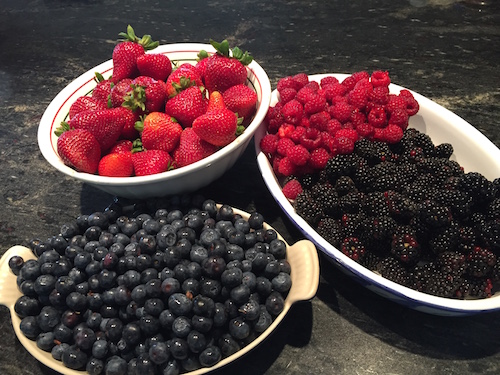Lost in the Leaves
Let's start with a quiz. What do you think this term could mean:
余談 (よだん) surplus + talk
a. talkative
b. gossip
c. inability to write concisely
d. digression
I'll block the answer with a preview of the latest essay:
Here's the answer:
d. 余談 (よだん: surplus + talk) means "digression."
Of Travels and Trees
Recently, my friend Gomita used the following term apologetically at the end of a long Facebook comment that covered a wide range of subjects:
四方山話 (よもやまばなし: talk about various topics)
I've blogged before about the etymology of that term because he previously used it after straying from the topic. Actually, he does that a lot, almost always in very difficult Japanese. Yesterday, as I worked with my language partner Kensuke to understand one of those very complicated digressions, we ended up examining various terms for "digression."
This common one implies that there's a main road to travel and that the person in question has left that road:
脇道 (わきみち: (1) side road; byroad; (2) digression (e.g., from argument)) side + road
Note that 脇, which can mean "armpit," represents "side" or "aside" in this context. Whew! Otherwise, this term could mean "road leading to the armpit"! The 脇 kanji also appears in this verb:
脇へそれる or 脇へ逸れる (わきへそれる: (1) to digress; stray from the subject; (2) miss the target; fly wide of the mark) side + to digress
The verb driving that phrase, 逸れる, has quite a few definitions, all relevant to the matter at hand:
逸れる (それる: (1) to turn away; bear off; veer away; swerve from; miss (e.g., a target); (2) deviate (e.g., of a conversation); digress; go astray; wander)
The next word for "digression" gives us the image not of a road but rather of a train track:
脱線 (だっせん: (1) derailment; (2) digression; deviation) to come off + track
Ah, getting off track—that's perhaps the best representation of a digression.
Then again, I also like this word a lot:
枝葉 (しよう or えだは: (1) branches and leaves; foliage; (2) unimportant details; nonessentials; side issue; digression) branches + leaves
For the secondary meaning, しよう is by far the more prevalent yomi. However you pronounce it, this term gives me the image that someone has strayed from the trunk (the main topic) and even from the branches, getting lost in the leaves.
The next word also starts with 枝 (branch), so I thought it fit with the tree theme:
枝道 (えだみち: (1) branch road; byroad; side street; (2) digression) branch + road
Looking more carefully at the definitions, I realized that this term is again about travel.
So it seems that the Japanese tend to visualize commentary (whether spoken or written) as a journey, a road, a path. Every so often, though, a discussion instead takes the form of a tree!
Rabbit Eyes and Other Uses of 目
Kensuke and I digressed from that discussion into another, one about 目. We were puzzling over Gomita's difficult explanation about grinding matcha into powder, and that investigation brought up this term:
目の粗い (めのあらい: coarse texture or grain)
The 粗い means "coarse" or "rough," but what could this 目 (usually "eye") represent? It's clearly nothing ocular! As we considered the matter, I found that Halpern puts 目の粗い in the same category as the following words, which share a yomi:
網目 (あみめ: mesh of a net)
編み目 (あみめ: stitch)
He says that these terms and 目の粗い all have to do with "linear pattern, texture, weave; grain (of wood), mesh (of a net)."
But why use 目 for such concepts? Henshall explains, in his new edition, that because 目 is the pictograph of an "eye," that has generated a range of extended meanings, including "mesh." I don't see why 目 (rather than any other kanji) should be the hook on which to hang all those extra definitions, but I'll cut my questioning short here, lest I lose myself in the leaves.
Speaking of eyes, I was so excited about scoring this bounty of fruit at the farmers' market this morning that I posted this image on Facebook. A Japanese friend in Chile wrote this in response:
ブルーベリーの中には、ウサギの目のように大きなものがあります。その名もRabbit Eyeという品種があります。チリでも売られています。
One type of blueberry is as large as a rabbit’s eye. For that reason, there's a brand of blueberry called Rabbit Eye, and it's sold in Chile.
Someone has thought about the size of a rabbit's eye? I love rabbits and details and even digressions, but perhaps the person who came up with this got lost in the leaves long ago and never emerged!
Just after writing this, I glanced at my wall, noticing anew a greeting card I've had up there since 2011. It features a wonderful image of a rabbit with two pomegranates! Fitting, no?
Catch you back here next time!
❖❖❖
Did you like this post? Express your love by supporting Joy o' Kanji on Patreon:




Comments